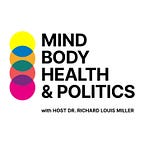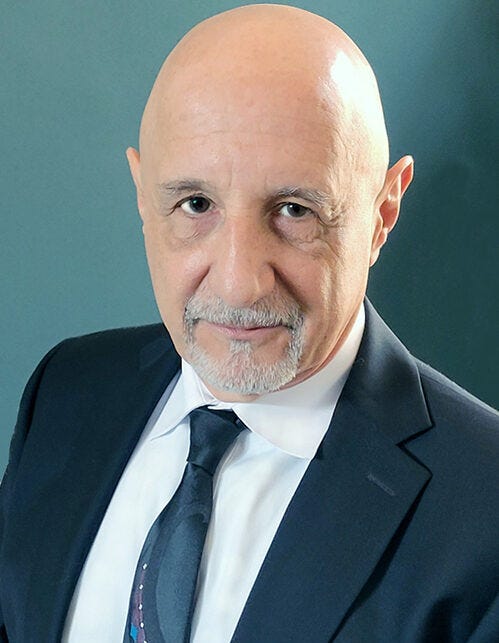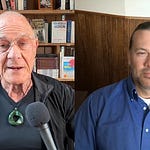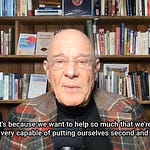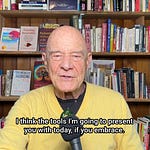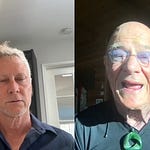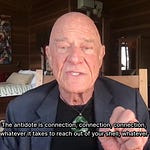Dear Listener,
Psychedelics have shown incredible potential as tools for healing trauma, depression, addiction, and more. Yet some warn that the recent renaissance in research has led their proponents to downplay the risks.
It’s incumbent upon us in the psychedelic science community to do the opposite of what Big Pharma does, and be transparent about the potential side effects of these powerful medicines.
This week, I continue my series on the unwanted complications of psychedelics with my dear friend Dr. Nick Cozzi, co-founder of the Alexander Shulgin Research Institute. A psychopharmacologist with over three decades of experience, Dr. Cozzi specializes in advancing our understanding of psychedelic substances. We had an open discussion about the unwanted complications that can sometimes occur with psychedelics.
With doctorates in pharmacology and neuroscience, Dr. Cozzi brings unmatched expertise on how psychedelics interact with the brain and nervous system. Nick speaks plainly but precisely, with no hype or hidden agendas. The ASRI conducts rigorous research to develop new compounds that retain psychedelics' advantages while minimizing side effects. For example, Dr. Cozzi is studying a molecule that may offer the cognitive insights from psychedelics without distracting sensory changes, potentially enhancing patients’ focus during psychotherapy. Such innovations highlight why research is vital - we are only beginning to understand these substances' potential.
Yet Dr. Cozzi is also well-attuned to the risks. He notes classic psychedelics like LSD or psilocybin pose minimal physiological dangers, whereas MDMA brings higher risks of cardiovascular complications based on genetics and how one metabolizes it. For instance, up to 35% of those with African ancestry poorly metabolize MDMA, increasing potential for certain side effects. Such research helps identify precautions to make psychedelic use as safe as possible.
Ayahuasca also contains MAO inhibitors that warrant avoiding certain medications and foods before and after use. Dr. Cozzi actually helped compile a list of substances that can interact with ayahuasca, causing unintended side effects. You can download that invaluable list here.
Even psilocybin and LSD aren't completely innocuous. Some experience headaches or nausea, hinting at unknown interactions deserving further study. While pure psilocybin caused no adverse effects in clinical trials, other components of mushrooms may play a role. Dr. Cozzi admits we currently know little about combining psychedelics or how to minimize unusual responses. We need rigorous science to unlock their benefits judiciously.
If this mission resonates with you, I encourage you to follow Dr. Cozzi's research at shulginresearch.net and subscribe to this program for more unbiased, solutions-focused conversations at the intersection of science, spirit and society. We are grateful for your listenership.
Golden light,
Dr. Richard Louis Miller
Watch the video:
Show notes:
Introductions and Current Interests (0:00-6:06)
Richard Miller welcomes Nick Cozzi to the show and asks what interests him these days
Cozzi discusses his recent interest in finding and eating morel mushrooms
Alexander Shulgin Research Institute Update (6:07-7:47)
Cozzi provides an update on preclinical research at the Institute on new psychedelic molecules
They are testing compounds that may have therapeutic potential without sensory effects
Unwanted Psychedelic Side Effects (15:16-19:26)
Miller asks about risks and complications of psychedelic medicines
Cozzi notes classic psychedelics are physically safe; risks are psychological
MDMA has more physiological risks due to metabolism and drug interactions
LSD and DMT Effects (34:56-38:46)
LSD has minimal physiological risks, mostly psychological
DMT's effects are short-lived when vaporized, though it is being researched
Ayahuasca Considerations (41:56-49:58)
Cozzi explains how Ayahuasca works and notes it contains MAO inhibitors
Residual MAO inhibition warrants caution with foods and medications
He helped create a list of substances to avoid with Ayahuasca
Psilocybin Effects (51:04-57:38)
Headache and nausea are paradoxical effects of psilocybin
Possible serotonergic mechanisms for these effects
No adverse effects seen in clinical trials with pure psilocybin
Conclusion and Combinations (58:56-1:03:32)
Little known about combining psychedelics like MDMA with psilocybin
Cozzi appreciates the chance to discuss understudied complications
More research into adverse effects will inform safe practices
Links and references:
NOTE: The podcast is always freely available thanks to our paid subscribers. Please share this post to show your support for transparency. The following transcript distills the key points from this show into a condensed form. It is meant as a reference - listen to the full episode for an accurate rendition of the conversation.
Transcript
Dr. Richard Miller: Welcome to the show, Nick.
Nicholas Cozzi: Thank you very much, Richard. It's a pleasure to be here. Thank you for inviting me to join you.
Dr. Richard Miller: Nick, aside from friends and family, what is currently catching your attention? What interests you these days?
Nicholas Cozzi: Well, that's a broad question. Over the last week or so, I have been focused on morel mushrooms. It is morel season in early May where I am in Wisconsin, usually the second to third week in May, and they only come up for a brief period of time. The other day, I visited a friend and started walking around his property with him and his wife, and I found about a dozen morels. I was just so thrilled. These are my favorite mushrooms to eat as a complement to dinner. Last year, I found none, so I consider myself very fortunate. So that's what's been on my mind the last few days: morel mushrooms.
Discussion on a new psychedelic molecule and self-experimentation in drug development
Dr. Richard Miller: Please provide an update on the current happenings at the Alexander Shulgin Research Institute.
Nicholas Cozzi: Sure, I would love to. Just for the record, I want you to know that I retired from teaching at the University of Wisconsin School of Medicine and Public Health. In your introduction, I just want your listeners to know that I occasionally give a guest lecture, but I'm not actively involved in teaching there anymore. Most of my efforts are indeed spent at the Alexander Shulgin Research Institute.
The latest developments are that we have identified two novel compounds that we are presently going through late-stage preclinical testing before they are put into human beings. We are doing some animal toxicity work, as well as characterizing their effects in vitro. We hope to have completed those studies by the fall of 2023. In fact, the molecule should be ready for submission to the FDA for investigational new drug status. This is all the kind of work that needs to be done before the FDA will approve a human trial.
Dr. Richard Miller: Could you provide any information about the molecules and their effects at this early stage?
Nicholas Cozzi: Well, yeah, a little bit. We think we've identified a molecule that is kind of the holy grail among some folks in this space these days - creating a molecule which produces a psychedelic cognitive state, but with reduced or absent sensory changes. In other words, the visual and auditory changes often seen with psychedelic substances like LSD or DMT or psilocybin seem to be absent in our lead candidate. But there is still the production of a cognitive state which can only be described as psychedelic - the ability to see patterns and connectivity among different ideas.
We think there might be interest in this in the psychotherapeutic community, where we've heard some clinicians say a molecule without the so-called distraction of visual changes like walls moving might benefit therapy. It could help patients concentrate more on the cognitive and emotional aspects without sensory distractions. Does that make sense?
Dr. Richard Miller: Well, it makes sense because for psychotherapy, we have had to use low-dose psychedelics, which is called psycholytic therapy. We differentiate between psycholytic and psychedelic therapy. In psycholytic therapy, the therapist and patient can converse while in psychedelic therapy, the patient journeys inwardly, doing very little conversing. It seems like what you are proposing might be more conversational and suitable for psychotherapy.
Nicholas Cozzi: Yes, I think that's accurate. This allows for communication between the therapist and patient. There's no need for eyeshades or headphones. We don't know yet since we're early in the process, but these reports are anecdotal. We hope to see if they are useful in the clinic once we get FDA approval.
Informal Human Trials for Novel Substances in Drug Development
Dr. Richard Miller: Nick, Alexander Shulgin, after whom your institute is named, was famous for self-experimenting with molecules. Are you allowed to share samples with others for informal human trials? What are the rules regarding this?


